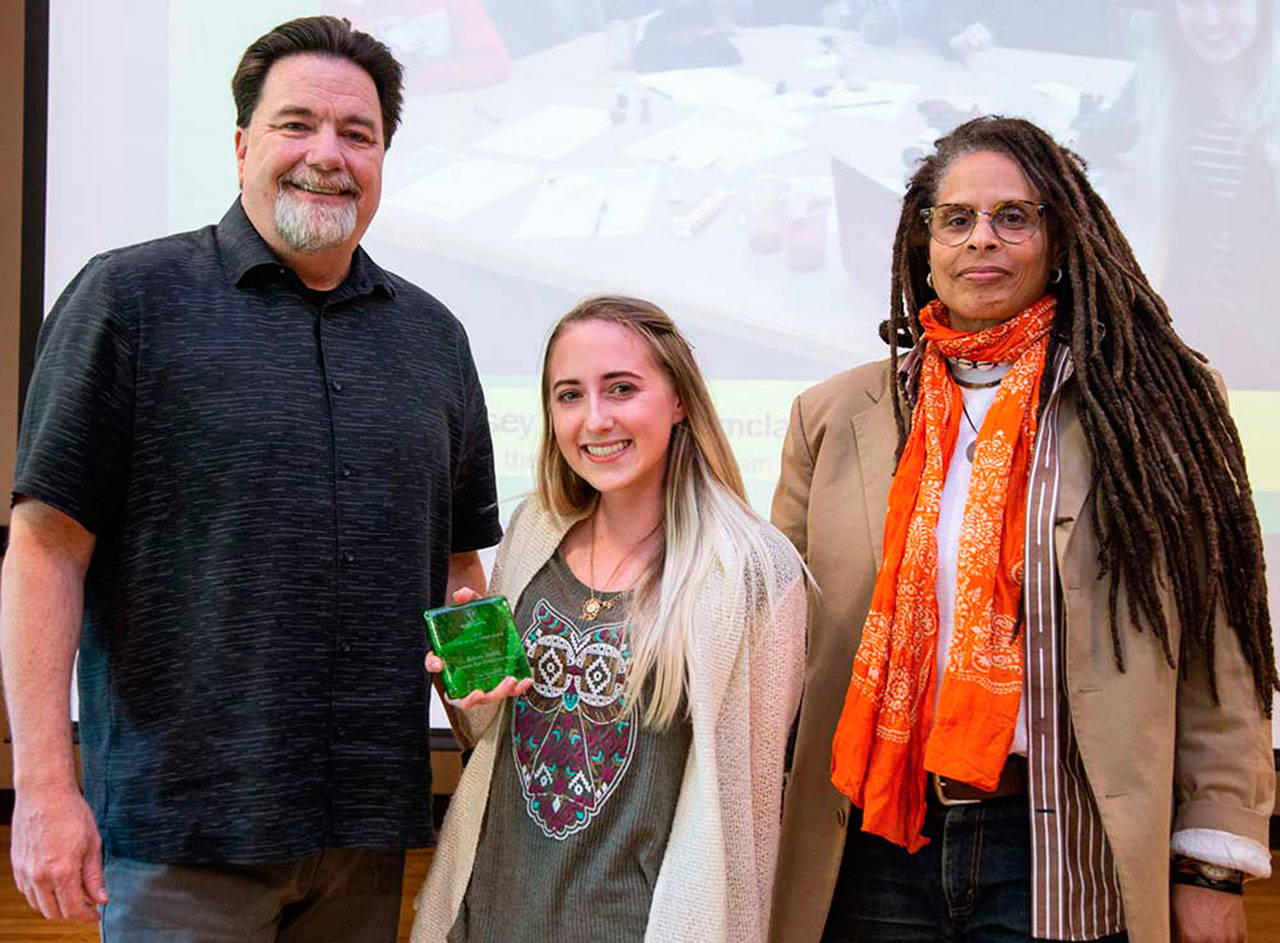Enumclaw High School sophomore Kelsey Webb is tirelessly working on several projects to reduce the community’s impact on the environment.
In December 2017, Webb began a project to create a recycling program and increase sustainability at Enumclaw High School. Her goal is to make EHS a green school according to the King County Green Schools program’s standards. She has been working with a representative from the program and the faculty and students at the school to complete this project.
A few weeks ago, recycling bins were purchased and put in place in the school cafeteria, and students have begun recycling. There has been a great response so far, but she is still working on educating them about what can be recycled.
“Students have been very cooperative, but there have been some struggles in getting everyone to know the rules,” Webb said in an interview. “Overall it’s been pretty good.”
Webb has created and shared videos with the school about recycling and put up posters on campus, but she is hoping to continue the education process once the school is finished with construction.
“I think that once we get our new campus up it will be a lot easier,” she said. “Right now we’re under construction, so having a culture change like this is more difficult. I’m hoping next year I can help with the recycling program being more of a culture change.”
EHS has a current recycling rate of 38 percent, meaning that of the waste that is collected, only 38 percent of the recyclable material is being recycled. 62 percent of recyclable material that is collected at the school is not being recycled, and Webb hopes to decrease that number through the creation of the recycling program.
“It has impacted the amount of garbage going from the school to the landfill. I’m happy about it,” EHS Principal Aaron Lee said in a phone interview.
Webb would like the school to become a level one green school by the time she graduates in two years. The school was unable to meet the deadline to become a green school this year but will be recognized as a green school next year once the recycling program is finalized, Webb said.
The King County Green Schools program has four levels that a school can attain, and the first one is recycling and waste reduction. Level two is attained through maintaining level one while adding another practice to reduce waste and completing an energy conservation packet. A level three school has sustained the practices of the previous levels while adding another waste reduction practice and completing a water conservation packet. Finally, a level four school has maintained the practices of the other three levels and has completed a new practice and shared the results with the school and community.
The Enumclaw School District currently has three schools that are part of King County’s Green Schools program. Enumclaw Middle School and Westwood Elementary have both reached level four, while Southwood Elementary School is a level two green school.
Webb also started a petition to ban the use of styrofoam trays at the school. Her initiative was successful, and the school will begin using reusable trays next year.
To reduce food waste in the cafeteria, Webb is also working on setting up a “Share Table.” Students who have leftover unopened food can put it on this table and other students who may not be able to afford as much food can take it. Instead of that food just being thrown away, she hopes that it can be saved and used by other students. If there are leftovers at the end of the day, one of the food banks in Enumclaw will collect it.
While the school recycling project is her main project, Webb is also working with local businesses to reduce their use of plastic straws.
She has contacted several businesses in the Enumclaw and Maple Valley area, but her partnership with The Mint in Enumclaw has been the most successful. They have allowed her to put up posters about the impact of peoples’ straw usage.
Currently, 500 million straws are used by people in the U.S. each day, according to the National Park Service, and since they are not recyclable, they end up in landfills. Some make their way into our oceans, impacting the marine life.
“My goal is for people to realize that this single use plastic project could actually end up harming our oceans and contaminating marine animals and our beaches,” Webb said.
Because of her efforts to reduce waste and increase sustainability at EHS and in the community, Webb was honored as a King County Earth Hero at a ceremony on May 3.
“The Earth Heroes award recognizes people in schools who are doing important work for the environment,” Earth Heroes Project Manager Donna Miscolta said.



